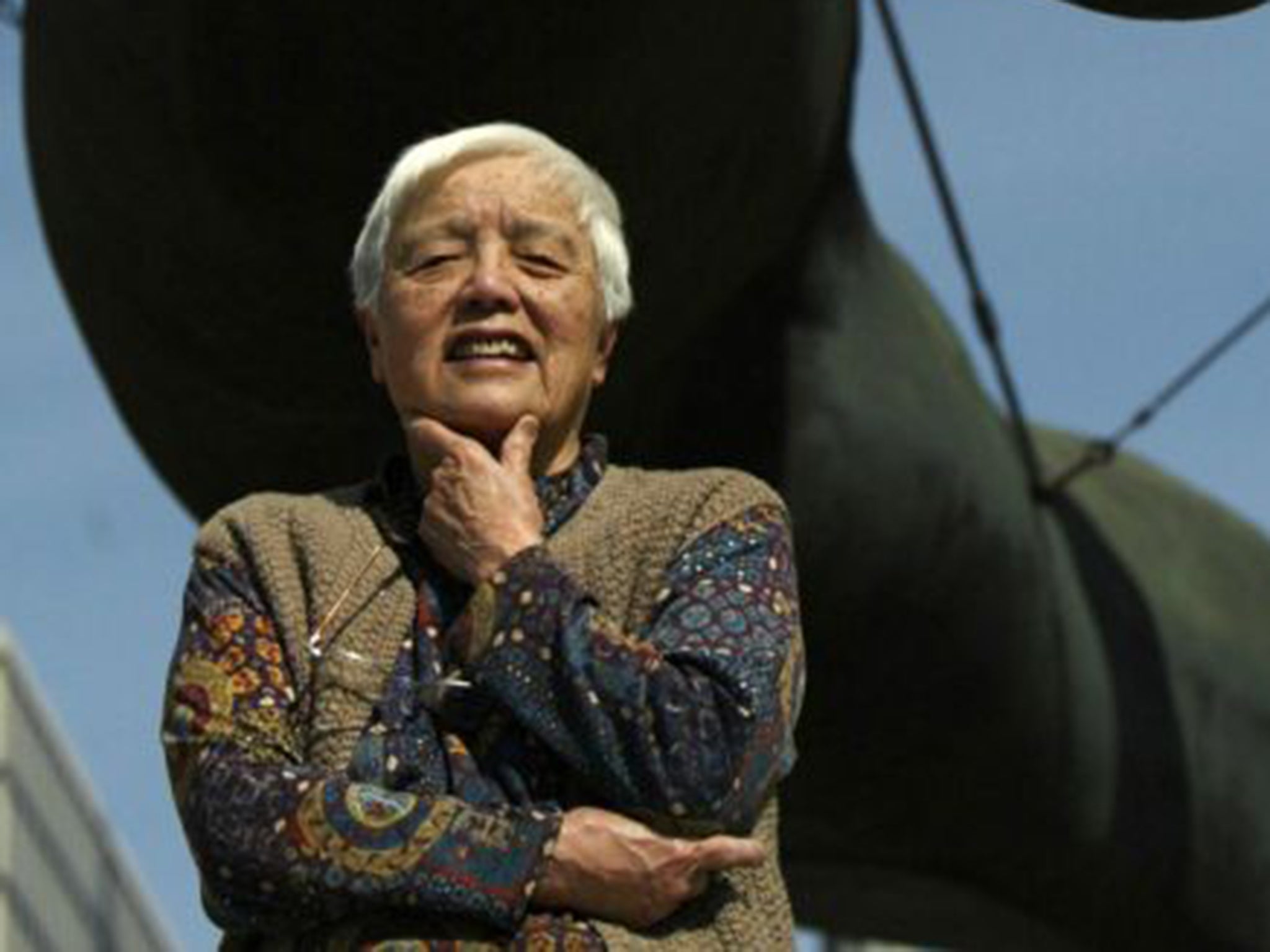Grace Lee: Social activtist who fought for civil rights, women’s rights and environmental causes
"They’d come right out and say, 'We don’t hire Orientals'"

Your support helps us to tell the story
From reproductive rights to climate change to Big Tech, The Independent is on the ground when the story is developing. Whether it's investigating the financials of Elon Musk's pro-Trump PAC or producing our latest documentary, 'The A Word', which shines a light on the American women fighting for reproductive rights, we know how important it is to parse out the facts from the messaging.
At such a critical moment in US history, we need reporters on the ground. Your donation allows us to keep sending journalists to speak to both sides of the story.
The Independent is trusted by Americans across the entire political spectrum. And unlike many other quality news outlets, we choose not to lock Americans out of our reporting and analysis with paywalls. We believe quality journalism should be available to everyone, paid for by those who can afford it.
Your support makes all the difference.Grace Lee Boggs spent seven decades marching, organising and inspiring new generations for a multitude of social causes, including the civil rights, feminist, labour and environmental movements. The daughter of Chinese immigrants, she was drawn to left-wing and radical politics from a young age. She aligned herself with Marxists, revolutionaries and writer-activists such as CLR James while working to improve social conditions for the poor.
Among those to cross her path was Kwame Nkrumah, the first post-colonial president of Ghana. In her 1998 memoir, Living for Change, she claimed that he was so drawn to her that he proposed marriage. She declined, unenthusiastic about moving to a continent “where I was totally ignorant of the history, geography and culture.”
In 1953 she married Chrysler car worker and fellow activist James Boggs. They opened their Detroit home to visiting civil rights leaders, including Malcolm X, and the FBI kept a file on them. In time, their residence became a salon for grassroots activists of all stripes, including those striving for labour and women’s rights, housing discrimination, racial justice, and access to education.
As the car industry declined and as the city suffered devastating race riots in the late 1960s, the Boggses founded many civic organisations dedicated to community development, including senior citizen programmes, gardens and music festivals. In 1992, the year before James died, they started Detroit Summer, an after-school programme that aimed to empower local students to take an active role in repairing the city.
More than 20 years later, Detroit Summer participants continue to paint murals, rebuild homes and work to revitalise the city’s neighbourhoods. In 2013 Grace founded the James and Grace Lee Boggs School in Detroit.
Boggs’ life and work in Detroit gained greater national recognition with the 2014 documentary American Revolutionary: The Evolution of Grace Lee Boggs, directed by the film-maker Grace Lee. The documentary, which traced Boggs’ decades of activism, was part of Lee’s ongoing project to find and interview women who shared her name.
Boggs was born in Providence, Rhode Island, in 1915. The family later moved to New York, where her parents opened Chin Lee’s, a popular Chinese restaurant near Times Square.
Grace grew up in Queens and graduated in philosophy from New York’s Barnard College in 1935. Five years later, she completed her doctorate at Bryn Mawr College. Her studies ignited her lifelong interest in Communist thinkers, such as Marx, and she translated three of his essays, but she couldn’t find a job in academia.
“I had no idea what I was going to do after I got my degree in philosophy in 1940,” she recalled. “But what I did know was at that time, if you were Chinese American, even department stores would deny you. They’d come right out and say, ‘We don’t hire Orientals’. So the idea of me teaching at a university and so forth was really ridiculous.”
Instead, she took a low-paying job at the University of Chicago library and lived in a rodent-ridden flat on the city’s South Side. “One day I came across a meeting of people protesting rat-infested housing,” she said. “That brought me in contact with the black community for the first time.”
She joined the South Side Tenants Organisation, set up by an offshoot of the Socialist Workers Party, and became more deeply involved in local activism. She participated in the March on Washington movement in the early 1940s, formed to protest discrimination in defence plants and the armed forces.
Settling in Detroit in 1953, she joined the staff of a Trotskyite newspaper and worked as a school teacher. At Detroit Summer and in her later work, she espoused a philosophy of activism she called “visionary organising”. Visionary organisers, she said, are wary of change at the legislative level; instead, they turn to grassroots networks to create a lasting effect on their communities. She continued to identify herself as a “revolutionary”, always adapting to accommodate new causes and groups.
She was asked by a reporter for her thoughts on “limited non-white participation in the Occupy movement”. She replied: “To ask, ‘Where are the people of colour?’ is ... a question of the past. I think the question we need to be asking ourselves, which the Occupy movement has raised, is: ‘What are our obligations to each other and to the world? How inclusive are our institutions, and if they are not, why not?’”
Grace Lee, activist: born Providence, Rhode Island 27 June 1915; married 1953 James Boggs (died 1993); died Detroit 5 October 2015.
© The Washington Post
Subscribe to Independent Premium to bookmark this article
Want to bookmark your favourite articles and stories to read or reference later? Start your Independent Premium subscription today.
Join our commenting forum
Join thought-provoking conversations, follow other Independent readers and see their replies
Comments